Autumn: Time to hunker down and get organised
As the year progresses to the season of ‘mists and mellow fruitfulness’, thoughts inevitably turn to hunkering down with hot chocolate and toasted marshmallows as the nights draw in. Autumn is a season traditionally associated with change, as well as themes of comfort, preservation and protection; a time to get things
in order.
Time to prepare
In many ways, autumn is the perfect time to get things done and that is certainly the case when it comes to finances. The halfway point of the fiscal year is fast approaching, making it an ideal time to consider your ISA or JISA investments and any other tax-related issues. It’s also an opportune time to look at pension arrangements and check your protection needs are fully met.
Don’t procrastinate!
While we all know the importance of keeping on top of our finances, it is easy to pop such tasks on our ‘must-do list’ and then proceed to forget all about them. A recently commissioned poll1 found 84% of the UK population put off key tasks by either doing nothing or doing something more enjoyable or completely unrelated, and a staggering one in five do this on a daily basis!
Sound familiar?
Engage with your finances
It is though extremely important to sort out financial arrangements long before you ‘need’ to. This is particularly the case with retirement planning, although research2 suggests relatively few people do actually engage with their pensions: more people knew the value of their house (58%), car (55%) and television (63%) than the value of their pension (38%) with almost as many knowing the value of their wardrobe contents (34%).
Apparently, statistics don’t lie, so it is clearly only human to procrastinate. However, it’s also true there’s no time like the present. It’s our business to make sure your finances are in good shape. We can help you tick a few more tasks off your ‘must-do list’.
1Micro Biz Mag, 2021, 2Aviva, 2021
The value of investments can go down as well as up and you may not get back the full amount you invested. The past is not a guide to future performance and past performance may not necessarily be repeated.
UK investors plan to continue lockdown habits
During the pandemic, many people have been able to significantly increase their investment contributions, as spending on travel, leisure and hospitality plummeted.
Now, a poll3 has revealed that, far from reducing their investment contributions as restrictions loosen, 76% of UK investors intend to keep up their lockdown habits, with half planning on reducing everyday spending in order to continue investing the same amount or more. On average, investors plan to contribute 19% more each month post-lockdown, increasing to 36% for younger generations. By contrast, just 6% plan to reduce their contributions.
The pandemic spawned a new generation of investors, but it was easy to assume it was just a temporary craze spurred on by lockdown boredom. These findings suggest otherwise, and show a permanent change in the UK’s attitude towards spending, saving and investing. The rise in investing makes particular sense when set against a backdrop of rock-bottom interest rates.
Get started on your investment journey
While it is never guaranteed, investments have historically delivered better returns than savings over the long term. For assistance in building a diversified portfolio aligned to your risk profile, please do get in touch.
3Barclays Smart Investor, 2021

A third are indebted as they enter retirement
Retirement. That much-awaited time when, after paying off your mortgage and accumulating a pension pot, you stop work and sail off into the sunset to enjoy your twilight years.
Unfortunately, not every retiree’s story matches this ideal. Indeed, far from having everything paid off, it has been reported that nearly a third of those retiring this year will do so in debt4. While the number of people approaching retirement in debt has remained steady (32% this year vs 33% last year), the value of those debts is around a fifth higher than last year’s average, with 2021 retirees owing £20,650 on average. This debt comes from various sources: Credit card debt – 40%, mortgage debt – 31%, overdraft – 17%, borrowing from family and friends – 8%.
IHT receipts soar in 2021
HMRC data5 has revealed that the government collected £5.4bn in Inheritance Tax (IHT) receipts in the 2020-21 tax year – £0.2bn (almost 4%) up on the previous tax year.
Typically, more than 20,000 deaths per year result in an IHT charge. There are steps that can be taken to keep an estate out of range of IHT or at least reduce any IHT due upon death.
Triple lock changes for 2022–23
After much speculation, in September, the Secretary of State for Work and Pensions, confirmed suspension of the average earnings component of the pension triple lock, to avoid a disproportionate rise of the State Pension following the pandemic. For the 2022-23 tax year only, the new and basic State Pension will increase by the higher of either 2.5% or the consumer rate
of inflation.
4Key, 2021, 5HMRC, 2021
COP26 – the investment industry steps up

The United Nations 26th Conference of the Parties – also known as COP26 – is being touted as the most important climate change event since the 2015 Paris Agreement.
Due to be held this November in Glasgow, the COP26 summit will bring together leaders from across the globe to build on the work left unfinished by COP25 and the goals set out in the Paris Agreement.
Why is COP26 so important?
We are already seeing glimpses of what awaits if climate inaction continues; in recent years, extreme weather events have risen in frequency, bringing devastation to countries across the globe. Furthermore, an alarming climate change report published by the UN’s Intergovernmental Panel on Climate Change (IPCC) in August found that ‘it is more likely than not’ that the global temperature will reach the so-called ‘tipping point’ of 1.5 degrees above pre-industrial temperatures within the next 20 years.
COP26 goals
The conference has four main goals:
1. Secure global net zero by mid-century and keep 1.5 degrees within reach
Countries are being asked to put forward ambitious carbon emissions targets by 2030.
2. Adapt to protect communities and natural habitats
Countries will work to find ways of protecting and restoring ecosystems and preventing further habitat loss in the future.
3. Mobilise finance
Developed countries must work to release trillions in private and public sector finance.
4. Work together to deliver
The challenges presented by the climate crisis can only be tackled by working together.
The investment industry has signalled its intention to play a role in the global climate transition. Launched in December, the Net Zero Asset Managers initiative has grown to over 120 investors managing $43trn – all committed to supporting the net zero goal and investing aligned with net zero emissions. COP provides an opportunity for investors to consider how they can innovate in developing solutions to climate issues and in financing sector transition.
Institutional Investors Group on Climate Change CEO, Stephanie Pfeifer, commented on the popularity of the initiative, “In just six months nearly half of the global asset management sector has committed to achieving net-zero emissions with their clients across the funds they manage. This marks a fundamental tipping point across the investment sector and a significant boost in efforts to tackle climate change and decarbonise the global economy. There’s a lot more to achieve, but the sector is increasingly on a path to a net-zero future.”
Investors increasingly recognise the threat posed by climate change With so much to achieve to bring climate change under control, it can be difficult to know what we can do at an individual level.
Investors have the power to put their money into companies that are actively working to limit climate change.
The value of investments can go down as well as up and you may not get back the full amount you invested. The past is not a guide to future performance and past performance may not necessarily be repeated.
The Financial Conduct Authority (FCA) does not regulate Will writing, tax and trust advice and certain forms of estate planning.
Inflation debunks ‘cash is king’ mantra

A modest level of price inflation is generally seen as acceptable and even as a sign of a healthy economy. For some years, the Bank of England’s target for annual Consumer Prices Index (CPI) growth has been 2%; not a steady 2%, as short-term fluctuations are inevitable, but an average of about 2% over several years.
Inflation rates matter to savers and investors because a high inflation rate erodes the spending power of money. For those with a lot of cash in the bank, interest rates lower than the inflation rate mean they will see their cash eaten away by an invisible but corrosive force, the wider the rate differential, the worse the impact on cash holdings.
Bank interest rates have been very low for the decade or more since the global financial crisis; the inflation rate indicated by CPI growth has also been subdued. This year, however, has seen inflation indices rise faster as the economy recovers. Few economists are talking about double-digit inflation, but the upward trend may prove persistent.
Cash savings in reverse gear
All of the above makes it seem odd that a survey of 2,000+ participants by NatWest Group found that, of the 76% of parents/ guardians of under-18s that are saving or investing for them, four in five are doing so exclusively in cash. Praising those that put money aside for their children, NatWest said, ‘The purchasing power of these ‘safe’ cash balances actually goes backwards over the longer term.’
A healthy bank balance of course has its place, as a reassuring buffer against unexpected expenditure (appropriate insurance policies reduce the risk of this), but it is rarely the best long-term home for larger sums.
‘Flip the context’ to protect your savings
The Financial Conduct Authority (FCA) has revealed that over £2m was lost to pension scammers in the first five months of 2021. The average amount lost so far in 2021 is £50,949, compared to
£23,689 in 2020. The FCA research shows that pension holders were nine times more likely to accept ‘advice’ from someone online than they would from a stranger they met in person.
FCA advice urges everyone who receives a pension offer online to imagine what they would do in real life, by flipping the context. For instance, if a stranger in a pub told you to put your pension into something they were selling, would you do that?
Signs of a scam
• Offer of a free pension review out of the blue
• Being offered guaranteed higher returns
• Offer to release cash from your pension, even though you’re under 55
• High-pressure sales tactics – scammers may try to pressure you with ‘time-limited’ offers
• Unusual investments which tend to be unregulated and high risk. If you are concerned about any pension offers you receive, don’t hesitate to contact us.

National Insurance and dividend tax rises
A new health and social care tax will be introduced across the UK from April 2022. The tax will initially begin as a 1.25 percentage point increase in National Insurance, paid by both workers and employers. From April 2023, it will become a separate tax on earned income, calculated in the same way as National Insurance and ring-fenced as a health and social care levy. Tax on share
dividends is also scheduled to increase by 1.25 percentage points.
Investing through the ages
Creating plans and setting goals are important at all stages of life, even if they inevitably change as we progress through life’s journey. Similarly, investment strategies also need to adapt as we move from one life stage to the next.
Twenty and thirty somethings
Arguably, financial decisions made in early adulthood are more important than any other and the key one is undoubtedly to start saving. While retirement may seem a distant prospect, financial
habits formed during these years will ultimately determine whether you enjoy a comfortable retirement or have to work
later in life.
A relatively long time-horizon means this group can tolerate greater risk as there is more time to recover any potential losses. A majority of savings should therefore typically be allocated
to equity investments which offer the greatest growth potential. Some savings, however, do need to be readily available for unexpected expenses or shorter-term projects such as a house deposit.
Forties and fifties
During these peak earning years, building up a pension and investment portfolio is paramount. Establishing a sound, tax-efficient plan is also key, while arranging regular financial reviews can ensure plans remain on track. As retirement looms, a more conservative approach may be appropriate, with funds switching from equities to more stable asset categories like bonds.
When I’m sixty-four
Changes to the State Pension age mean more people now continue to work and invest well into their sixties. At this stage, attention will increasingly shift to income-generating products and ensuring projected income levels are sufficient to live on. Focus will also inevitably move to wealth protection and issues relating to wealth transfer.
Whatever your age, we’ll help you make the right investment choices at the right time.
Regulator notes vital insurance need
Earlier this year, the Financial Conduct Authority published the results of its latest Financial Lives Survey. These showed, among other things, that COVID-19 had presented
a severe test for the population’s finances, and that about a quarter of UK adults displayed signs of low financial resilience. Such signs include over-indebtedness, low levels of
savings and low or erratic earnings.
There were two stages to the FCA survey: the first covered the period August 2019 to February 2020; the second was conducted in October 2020 to test the impact of COVID-19 on the
population’s financial health. The pre- COVID stage presented a mixed picture, with some positive findings but also some areas of concern in matters such as protection insurance cover.
Mind the gap
On the plus side, FCA reported, ‘The proportion of people holding any insurance product increased from 81% in 2017 to 88% in 2020.’ However, the survey exposed what FCA referred to as ‘a significant protection gap’, as its data showed that 53% of respondents held no protection products whatsoever, albeit an improvement from 59% in 2017.
The protection gap was particularly marked among those aged 18-24 as well as a range of other groups, including those with vulnerabilities or lacking confidence in managing their money. Yet
many in these groups are responsible for families that would likely suffer hardship if they were to die prematurely or suffer unexpected illness or injury.
There may be many pressures on the financial resources of adults in the younger age ranges and on vulnerable groups, but it is important for them to have adequate protection if possible,
perhaps with help and encouragement from wider family as appropriate.
Financial advice and wellbeing go hand in hand
According to a recent study6, those who take financial advice are four times more likely than those without, to have high levels of financial wellbeing. The study also revealed that the average advised client accumulated almost three times more pension savings (£246,000), compared to non-advised people (£95,000). Advised clients also accumulated total non-pension savings of
£65,000 versus £32,000 (non-advised).
6Aegon, 2021
It is important to take professional advice before making any decision relating to your personal finances. Information within this newsletter is based on our current understanding of taxation and can be subject to change in future. It does not provide individual tailored investment advice and is for guidance only. Some rules may vary in different parts of the UK; please ask for details. We cannot assume legal liability for any errors or omissions it might contain. Levels and bases of, and reliefs from, taxation are those currently applying or proposed and are subject to change; their value depends on the individual circumstances of the investor.
The value of investments can go down as well as up and you may not get back the full amount you invested. The past is not a guide to future performance and past performance may not necessarily be repeated. Changes in the rates of exchange may have an adverse effect on the value or price of an investment in sterling terms if it is denominated in a foreign currency. Taxation depends on individual circumstances as well as tax law and HMRC practice which can change.
The information contained within this newsletter is for information only purposes and does not constitute financial advice. The purpose of this newsletter is to provide technical and general guidance and should not be interpreted as a personal recommendation or advice. The Financial Conduct Authority does not regulate advice on deposit accounts and some forms of tax advice.
The value of investments can go down as well as up and you may not get back the full amount you invested. The past is not a guide to future performance and past performance may not necessarily be repeated.


